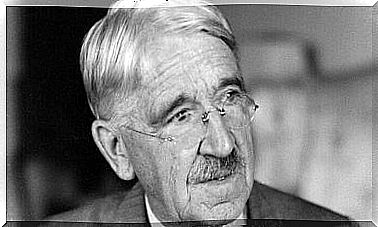What To Do When Thinking Too Much Becomes A Problem

As rational beings, thinking is an activity that is part of our nature. Thoughts can be our allies, but they can also be our worst enemies. Whether or not they turn into a problem depends on the way we use our reason and the awareness we apply.
If we understand “thinking” as the act of reasoning, understanding, imagining in such a way that this action helps us make decisions and carry out a task, we can conclude that it has great power, as much as we want to give it. It must be remembered that thinking is not stable, it is not always sensible and does not necessarily have to be reasonable.
Overvaluing our thoughts in certain situations and circumstances can harm us more than it can benefit us; for this we must be aware and open the mind to other influential possibilities, such as our emotional state, our experience or particular conditions such as alcohol consumption.
There are many factors in constant interaction with our thoughts. Being aware of their existence helps us not to be slaves to our thoughts and not to obsess over them.
When thinking causes us anxiety
There are situations where we have the feeling that we cannot stop thinking and constantly mull over the same thing. During this perennial reflection process, we become obsessed with something that steals most of our time and thoughts. When we worry about something, anticipate a situation, or remember past moments, we leave the door wide open to anxiety.

The anxiety created by our thoughts ends up becoming an out of control process: we find ourselves dominated by facts, by the uncertainty of what has not yet happened and what is about to happen. All this happens when we do not pay attention to the present, we get lost, we get disoriented and we get distracted from the present, from the world of the here and now.
Trying to explain everything around us turns our thoughts into anxiety. There are people with a greater tendency to worry and to seek explanations for everything they experience. Those with such inner dynamism must make a great effort to remain calm and focus on what they are feeling in the present moment.
Focus on the present moment
Faced with the anguish that arises from our thoughts, the best thing is to do everything possible to focus all attention on the present moment. When we seize the moment, we can keep control over our thoughts, focusing on the experience, on the reality close to us. Let us allow ourselves to be penetrated and infected by what surrounds us with a different meaning from the one we started in our mind.
When we accumulate thoughts and exhaust ourselves with worries, a useful exercise is to start writing and ordering ideas, observing what is written to find solutions as they come to our mind. In this way, we will do something against what is tormenting us and leave room for decisions and solutions.
Understanding and accepting our way of thinking helps us not to throw ourselves into despair and victimhood. Understanding that thoughts are part of us and that they can be used to our advantage prevents us from coming into conflict with them, a conflict that, in reality, would be with ourselves.
I control what I think
Since we are not what we think and that thoughts are part of us, we understand better the nature of them. We know that they are part of us and of our experiences, which are linked to our attitude and our way of seeing and living life. Therefore, complaining about what we usually think is nothing more than a ploy to escape from ourselves.

We can control what we think, especially with the practice of concentration. We can guide our thoughts towards what is most important to us; we can remain anchored to them or we can move forward and leave room for the world of possibilities that will present themselves and over which we have no control.
Our attitude determines the way we think and act. We can remain in our world of possible options without ever daring to make decisions or develop a strategy and shape an opportunity through our decisions.
Even if thinking is an automatic action that arises in us involuntarily, it does not mean that we cannot adopt an active attitude. If we remain spectators of our thoughts, we will accept that controlling them is impossible and, in this way, they will dominate us.
You have to tell yourself “I control what I think”. In this way, you will adopt a more active and beneficial attitude.









